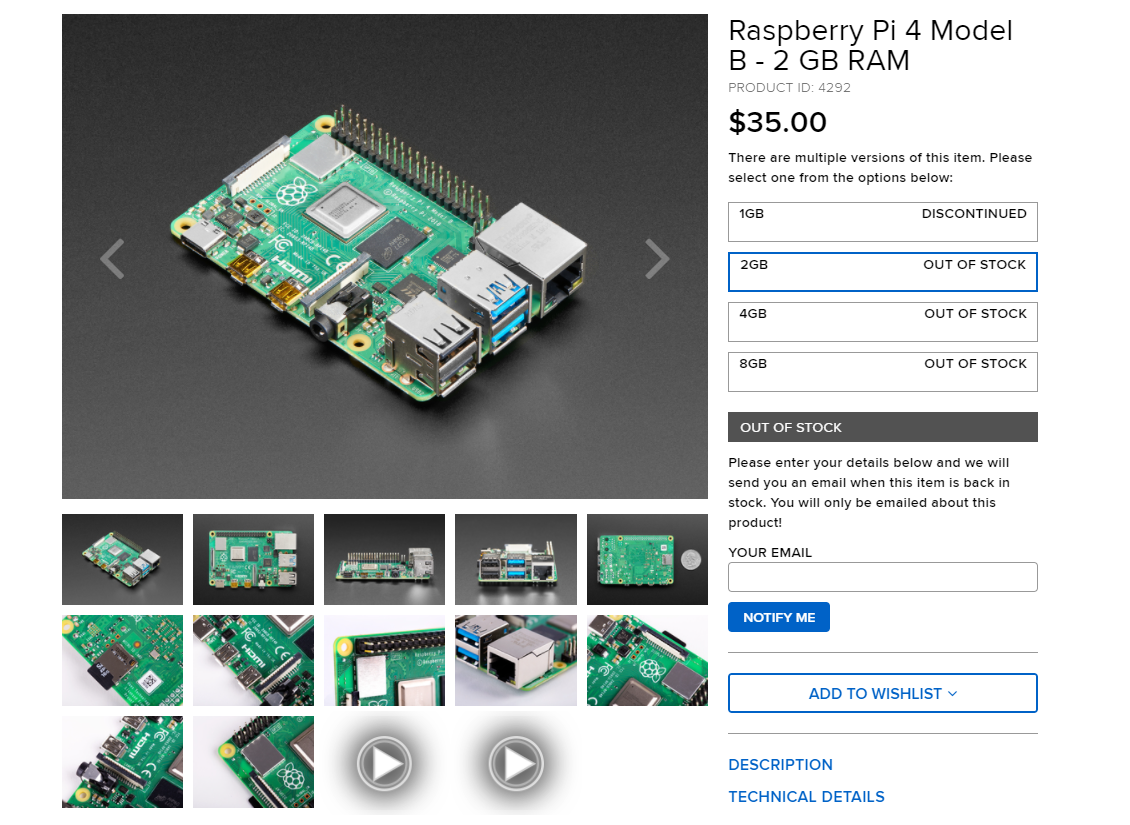Raspberry Pi 4 Sees Price Increase, Global Supply Chain to Blame
Raspberry Pi 4 2GB goes up by $10, 1 GB model takes the $35 slot
In a blog post from Raspberry Pi Founder Eben Upton, today we learned that even the mighty Raspberry Pi is not immune to the global chip shortage. For the first time, Raspberry Pi is increasing the price of a 2GB Raspberry Pi 4 and bringing back the 1GB model. But as Upton assures, these are only temporary measures.
The Raspberry Pi has enjoyed nearly a decade of growth and has maintained a low-cost point of entry for single board computer enthusiasts. During this time, prices have gone down, and specs have gone up. But, for the first time, Raspberry Pi is temporarily raising the price of the Raspberry Pi 4 2GB model up to $45, an increase of $10. The cause of this increase is the global supply chain, hit hard due to shortages and COVID 19. The news also sees the return of the Raspberry Pi 4 1GB model, discontinued in February 2020. The 1GB model will fill the $35 gap for the time being, and provide an update path for industrial customers.
Raspberry Pis are manufactured by Sony in its Pencoed facility in Wales. Still, despite the best efforts of Sony and Raspberry Pi's commercial team, it seems that only 7 million units will be made in 2021. That's similar to the production output for 2020.
Demand is still high for Raspberry Pi, and this means that older Raspberry Pi products (basically anything older than the Raspberry Pi 4) will see limited production as the company focuses on the latest boards.
Raspberry Pi issued guidance for industrial users, who typically favor older Raspberry Pi models. Due to limited stocks of 40nm silicon, priority will be made for producing Compute Module 3, Compute Module 3+ and Raspberry Pi 3 Model B. So, where does this leave industrial customers using the Raspberry Pi 3B+? Well, guidance in the blog post clearly indicates that now is the time to migrate to the Raspberry Pi 4 1GB, which shares the same wireless connectivity and is certified by the FCC.
The price increase is temporary, and Upton assures that the company expects to have enough 28nm silicon, used in the Raspberry Pi 4 and Compute Module 4, for the next twelve months.
Get Tom's Hardware's best news and in-depth reviews, straight to your inbox.

Les Pounder is an associate editor at Tom's Hardware. He is a creative technologist and for seven years has created projects to educate and inspire minds both young and old. He has worked with the Raspberry Pi Foundation to write and deliver their teacher training program "Picademy".
